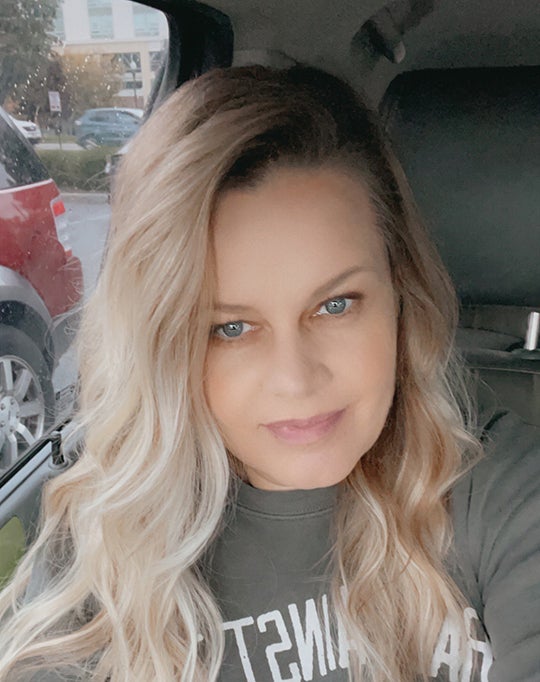Social work isn’t what you might think, and the students pursuing social work degrees through Boise State’s School of Social Work are as different as their passions and goals for their lives and futures. That’s a very good thing – the challenges they face in their internships, graduate assistantships and coursework show just how needed their perspectives and skills are.
Here’s a sneak peek at the “social workers” of the future (spoiler alert: The term hardly captures the range of what they’re interested in – and what they might accomplish.)
Carrie Voss
Advanced-standing master’s student

Carrie Voss is back to finish what she started as an undergraduate, but this returning Bronco is coming full circle in more ways than one.
She completed her social work bachelor’s degree in May 2020, then took a year off before returning to the master’s program.
Why would she stick so close to her undergraduate roots? She’s been an Idahoan since she was 2 years old, so there’s that. But there’s more to Voss’ story.
“I love Boise State and specifically, the School of Social Work,” she said. “It was all just super-positive and supportive.
“I found a real sense of community at Boise State in general and especially in the School of Social Work.”
Voss is a nontraditional student, having started her college studies when she was in her late 40s. She completed her core classes and prerequisites at the College of Western Idaho, which made finishing her bachelor’s degree at Boise State more affordable and convenient.
But her studies in social work, as is the case with so many of those enrolled in and graduated from the school, are driven by far deeper factors. Voss has herself, among other things, experienced housing insecurity and complex childhood trauma. She is a survivor of intimate partner violence and has lived in a domestic violence shelter. She has struggled with substance misuse and has been involved with the criminal justice system.
In short, she is an embodiment of what social work can do when it is successful – and she knows she is in a unique position to help many, many others as the result of both her education and her own life. After an earlier, dissatisfying start in information technology, a conversation with a counselor turned Voss on to the idea that there was a bright future to be carved out of her background.
“I had tried college in the past,” she said. “I raised my children and I didn’t have any employable skills, to be honest.”
She recalls being told, “‘I really think you have the heart of a social worker.’
“I really felt a calling to help women like me,” Voss said. “It’s actually been amazing for me to do.”
With her children grown and a simple but orderly life now, she is able to focus on herself, her growth and her increasingly bright prospects, in large part due to the social work curriculum and her current internship at the Nampa Family Justice Center.
“Every single class I take, my brain lights up,” Voss said. “I’m just like, ‘I love this,’ everything we’re talking about.”
As part of her field work at the Nampa Family Justice Center, she is counseling survivors of domestic violence and facilitating support groups. Voss has gone in prepared; she’s the professional that she herself would expect.
“I absolutely love it. I’ve had a lot of experiences where I am able to relate,” she said. “We are trained, and I’ve done a lot of the work around this. I find that my life experience helps me to be more relatable to people.”
And while the Boise State program gives Voss and other students a variety of settings and choices in which to imagine themselves doing social work, she continues to see herself supporting those like she was just a few years ago.
“I just find that I am particularly fond of working with people who have been in the situation that I was,” Voss said. “It’s a really good feeling, to know that I’m competent. It’s been great for my self-esteem.”
She is extremely grateful for her past, her present and her very bright future – and the School of Social Work gets a lot of credit for that. She notes that she is already receiving offers of employment; she plans to earn her clinical license and eventually go into private practice as a therapist.
“I’ve experienced more growth within the last three years, certainly … than I have in my entire life, just a monumental period of growth for me,” Voss said.
“I really feel like the pain from my past has a purpose now. That’s the simplest way I can put it. Giving my pain a purpose.”